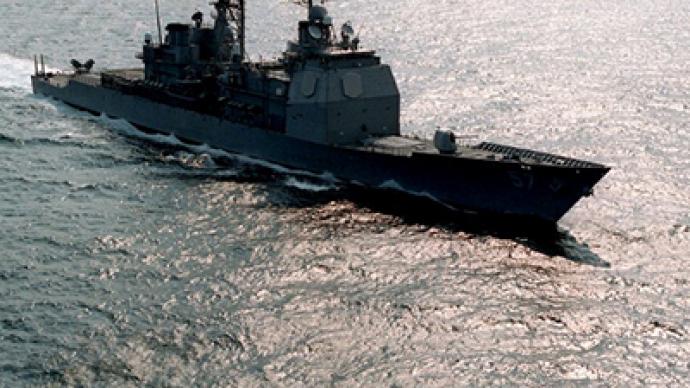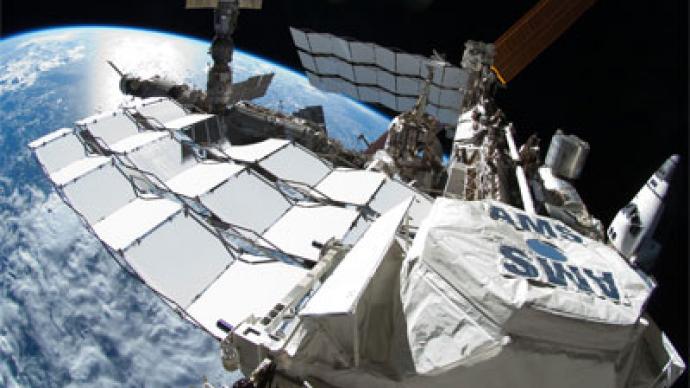A top Russian official says a US missile defense system near Russia’s border is strategically destabilizing and may prompt an arms race.
Speaking on the threat of mobile, naval-based elements of the US missile defense system “suddenly appearing” on Russia’s coastline, Deputy Prime Minister Dmitry Rogozin said such an event would trigger “the harshest reaction from Russia.""We must consider the effective protection of our strategic nuclear forces," Rogozin said in an interview with the magazine Voyenny Parade (‘Military Parade’).Rogozin, while not elaborating on what Russia’s response would be, noted that Russia is taking definite steps to counter American ships “equipped with the Aegis integrated naval weapons system.”Russia has warned its US and NATO partners on numerous occasions that unless the two sides can reach an acceptable agreement over NATO plans to unilaterally build a missile defense shield in Eastern Europe, another arms race is inevitable.Ironically, it was US President Barack Obama – the same American leader who pushed for a “reset” with Moscow – who introduced the current missile defense plans that may include stationing Aegis missiles aboard US warships in the Black Sea. Washington says the missile defense system, which is capable of intercepting short- to intermediate-range ballistic missiles, is vital for protecting Eastern Europe from “rogue states,” like Iran and North Korea. At the same time, however, the western military alliance ignores Moscow’s concern the strategic balance may be upset. In fact, NATO even refuses to provide Moscow with written, legal guarantees that the system will not in the future target Russian territory.Judging by Rogozin’s strong words, it seems that another arms race has already begun."U.S. missile defense in its current form is obviously destabilizing and prompting an arms race between Russia and the U.S. and NATO," Rogozin noted.Russia is considering ways of “suppressing and penetrating” the missile defense system in ways that will guarantee “unacceptable damage to any aggressor, and force it to resist the temptation to test Russia's strength,” the Deputy Prime Minister added. Rogozin, who served in a previous capacity as Russia’s NATO envoy, explained his use of blunt language."We must be frank about this. I was the Russian envoy to NATO for four years and I know what language they understand best of all," he said.Robert Bridge, RT


